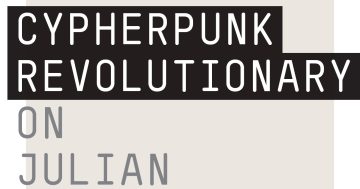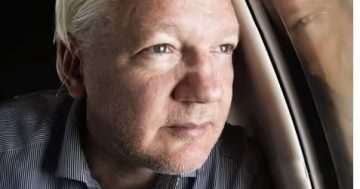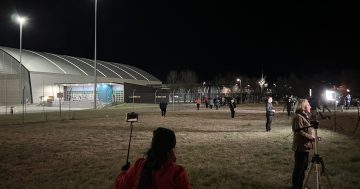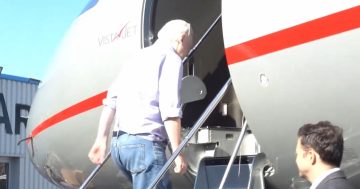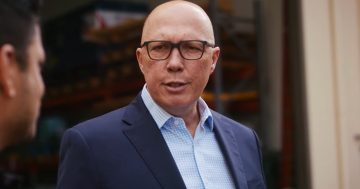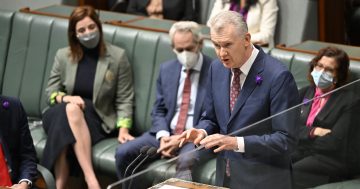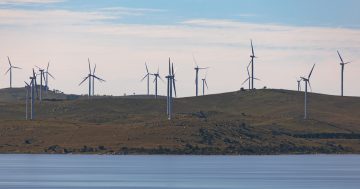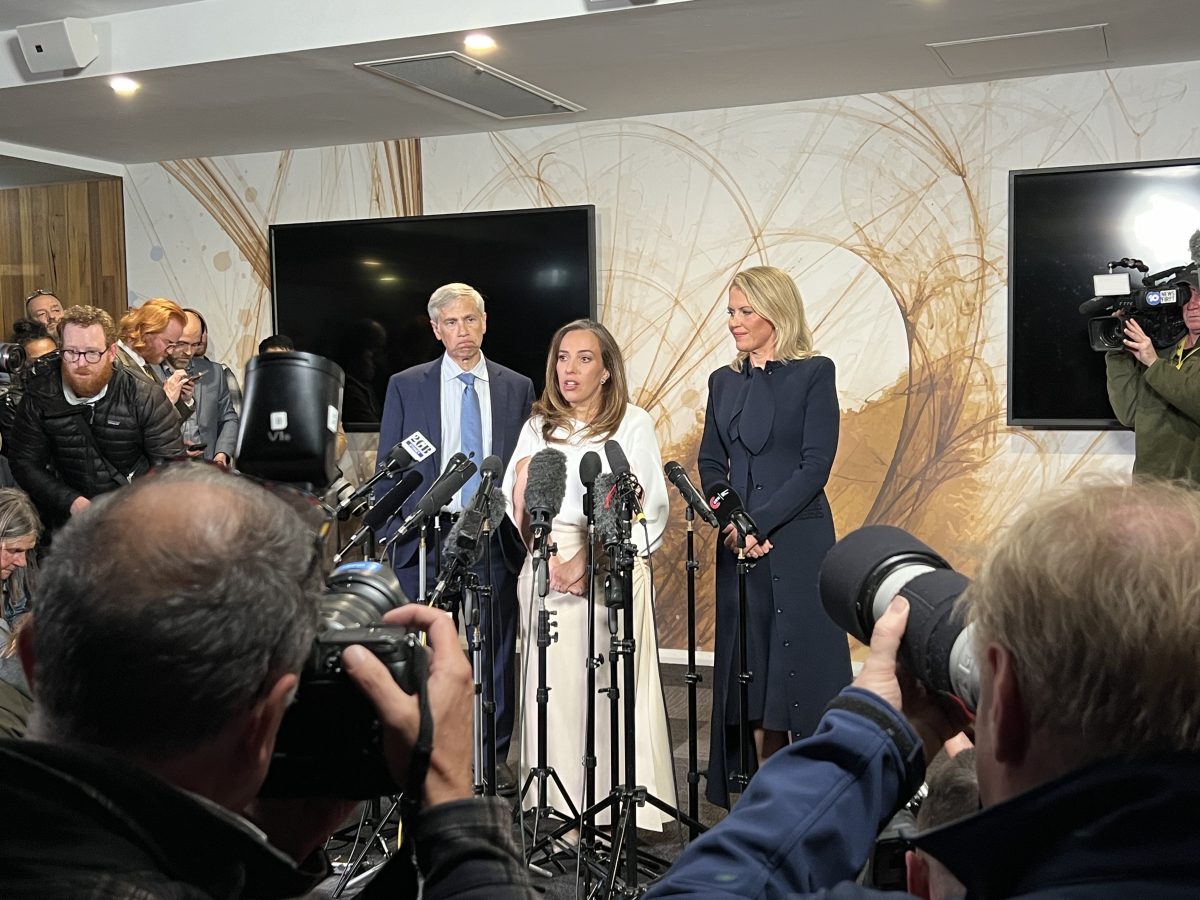
Barry Pollock, Stella Assange and Jennifer Robinson spoke to the media after touching down in Australia with Julian Assange. Photo: Claire Sams.
After nearly six years in a UK high-security prison, Julian Assange is a free man in Australia.
Supporters who braved the winter chill at Canberra Airport cheered as Mr Assange’s plane touched down on Wednesday evening (26 June). He raised a fist in the air and embraced his wife, Stella Assange, and his father on the tarmac.
Ms Assange teared up as she spoke to gathered media at the East Hotel in the Canberra suburb of Kingston later that evening.
She was “overcome with emotion” when they arrived on Australian soil after 7:30 pm.
“It took millions of people,” she said.
“It took people working behind the scenes [and] people protesting in the streets for days and weeks and months and years – and we achieved it.”
Earlier that day, the Wikileaks founder had pled guilty in Saipan to the criminal charge of conspiracy to obtain and disclose national defence information in a plea deal. He was sentenced to time already served and left for Australia.
“I hope journalists and editors and publishers everywhere realise the danger of this US case against Julian that criminalises – that has secured a conviction for – newsgathering and publishing information that was in the public interest, that was true, that the public deserved to know,” Ms Assange said.
The US had sought his extradition over the publication of classified US military intelligence.
American co-counsel Barry Pollack said the charges against Mr Assange should never have been brought.
“No one should spend a day in prison for giving the public newsworthy and important information, and in this case, information that the US government had committed war crimes, that there were civilian casualties exponentially greater than what the US Government had admitted in Iraq and Afghanistan.
“It was definitely in the public’s interest to have this information and Julian provided it to the public. He performed a tremendous public service, not a crime.”
Mr Assange would not be subject to a gag order or other conditions upon release.
“There are absolutely no restrictions on Julian. The case against him is over,” Mr Pollack said.
Mr Pollack said the US Government’s pursuit of Mr Assange had set a dangerous standard.
“It is unprecedented in the United Stations to use the Espionage Act to criminally prosecute a journalist or a publisher,” he said.
“In the more than 100-year history of that law, it had never been used in this fashion.”
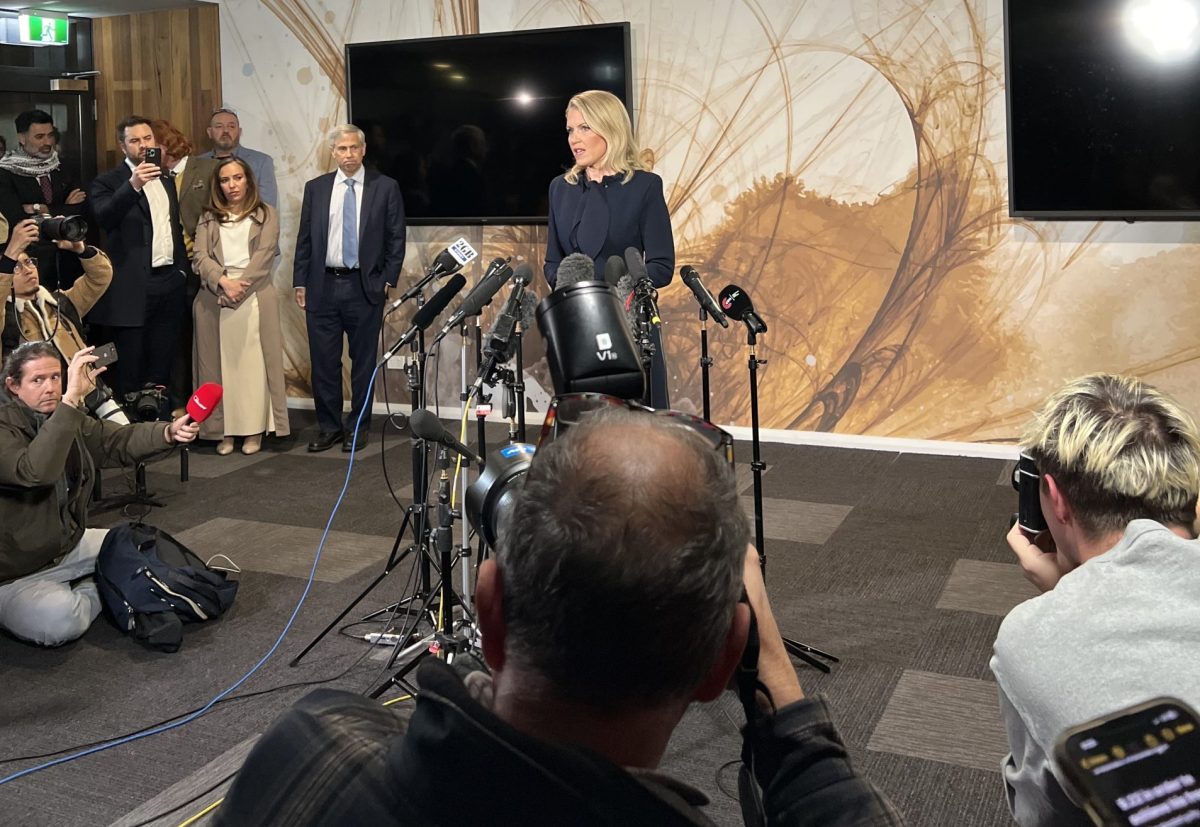
Jen Robinson, Mr Assange’s lawyer, said the charges against him were a challenge to media freedoms. Photo: Claire Sams.
Mr Assange’s lawyer, Jennifer Robinson, described Wednesday’s outcome as “a huge win for free speech”.
“That Julian came home today is the product of 14 long years of legal battles, political advocacy and ongoing campaigning – not just by us, but by so many people in this community,” she said.
“A global movement was created around Julian and the need to protect free speech, and it’s that global movement that led to his release today.”
Prime Minister Anthony had spoken to Mr Assange after he arrived in Australia, Ms Robinson said.
“[Mr Assange] told the Prime Minister that he had saved his life and I don’t think that’s an exaggeration.”
Ms Assange asked for privacy as her husband “recuperates”.
“I ask you, please, to give us space, to give us privacy, to find our place, to let our family be a family before he can speak again at a time of his choosing,” she said.
While she said it was too early to say what her husband’s next actions would be, Ms Assange urged the media to call for a pardon.
“That precedent [of Mr Assange’s case] now can and will be used in the future against the rest of the press,” she said.
“It is in the interest of all of the press to seek for this current state of affairs to change through reform of the Espionage Act, through increased press protections, and yes, eventually when the time comes – not today – a pardon.”
Original Article published by Claire Sams on Riotact.


